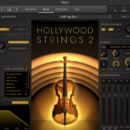This article will discuss the five most important provisions in a recording artist’s personal management agreement (“Agreement”).
The Term
The “term” of the agreement refers to how long the agreement will last. For recording artists, it is typically three or four years. From the artist’s perspective, it is better to have a shorter term in case things don’t work out. If you are happy with your manager, you can always mutually decide to renew the agreement. The agreement must state when the Term starts and ends.
Authority
What will your manager have the right to do under the agreement? Often, the agreement will give the manager authority to (with the artist’s consent, not to be unreasonably withheld) permit the use of artist’s name, photos, likeness and voice, for the purposes of advertising and publicity, engage and discharge business managers, agents, attorneys, and accountants and other business professionals.
I have had artists bring me proposed management agreements whereby the manager is also given “Power of Attorney” to sign contracts. Sometimes the agreement provides that the manager can only sign certain types of contracts if the artist is not reasonably available. Usually, I would strongly advise my clients not to agree to give the manager a power of attorney to sign contracts.
Commisions
Commissions are the compensation paid to the manager under the agreement. In the music biz, managers usually ask for 20% of gross earnings earned in the entertainment industry. So if the artist earns money on the stock market, obviously, the manager cannot commission it. But what happens when the recording artist is also an actor? Sometimes the artist can exclude non-music industry income. For instance, if an established actor decides to pursue a music career, the artist can argue that the acting income should not be commissioned since acting income existed before the signing of the agreement.
Collection of Money
Your agreement should provide where your earnings will go. Will it be paid directly to you, your manager or your business manager? Or perhaps monies are deposited into a manager/artist joint bank account The agreement may provide, for instance, that once the artist’s gross earnings exceed $15,000 in any calendar year, the artist will have the right to appoint a business manager to collect money. The artist may feel he or she should be able to pick his or her own business manager without the manager’s approval. But the manager may argue he or she should have input since some of the money collected by the business manager belongs to the manager (commissions).
In any event, the artist and the manager should agree to maintain true and complete books and records of income and audit rights for each of the parties should be provided for.
Boilerplate Provisions
These are typical provisions that are included in many agreements. For instance, a provision which provides where will a dispute be litigated or arbitrated. Another example is what is known as an “integration” clause, which is a provision that says the written management agreement is the entire agreement (no oral agreements), and any revisions must be in writing.
GLENN LITWAK is a veteran entertainment attorney based in Santa Monica, CA. He has represented platinum selling recording artists, Grammy winning music producers, hit songwriters, management and production companies, music publishers and independent record labels. Glenn is also a frequent speaker at music industry conferences around the country, such as South by Southwest and the Billboard Music in Film and TV Conference. Email Litwak at [email protected] or visit glennlitwak.com.
This column is a brief discussion of the topic and does not constitute legal advice.













